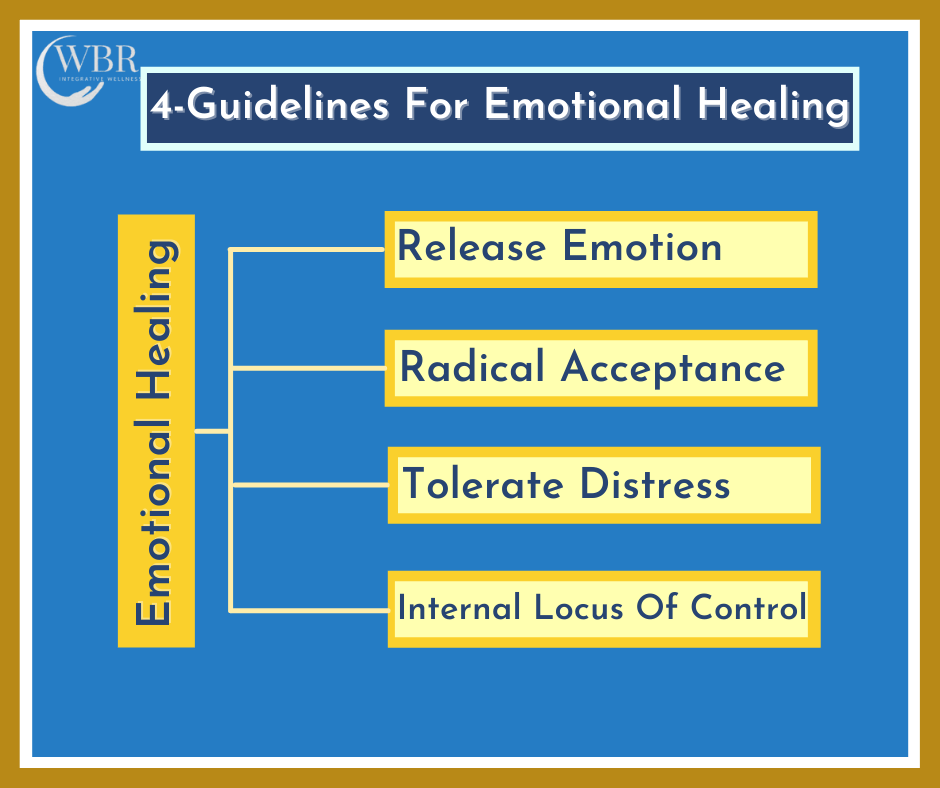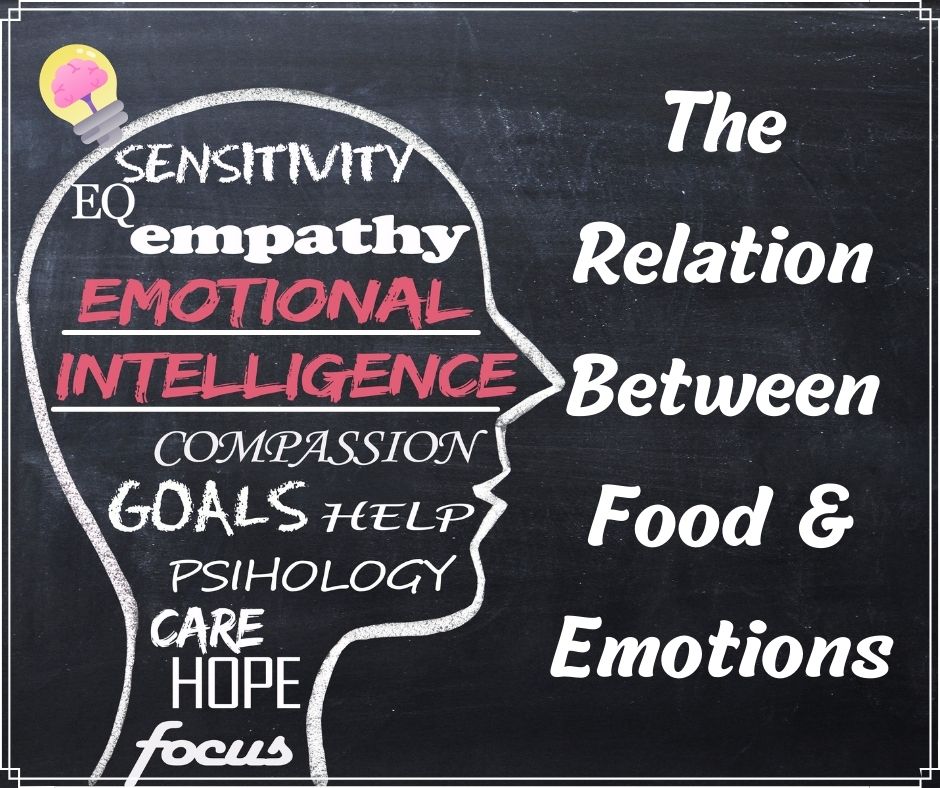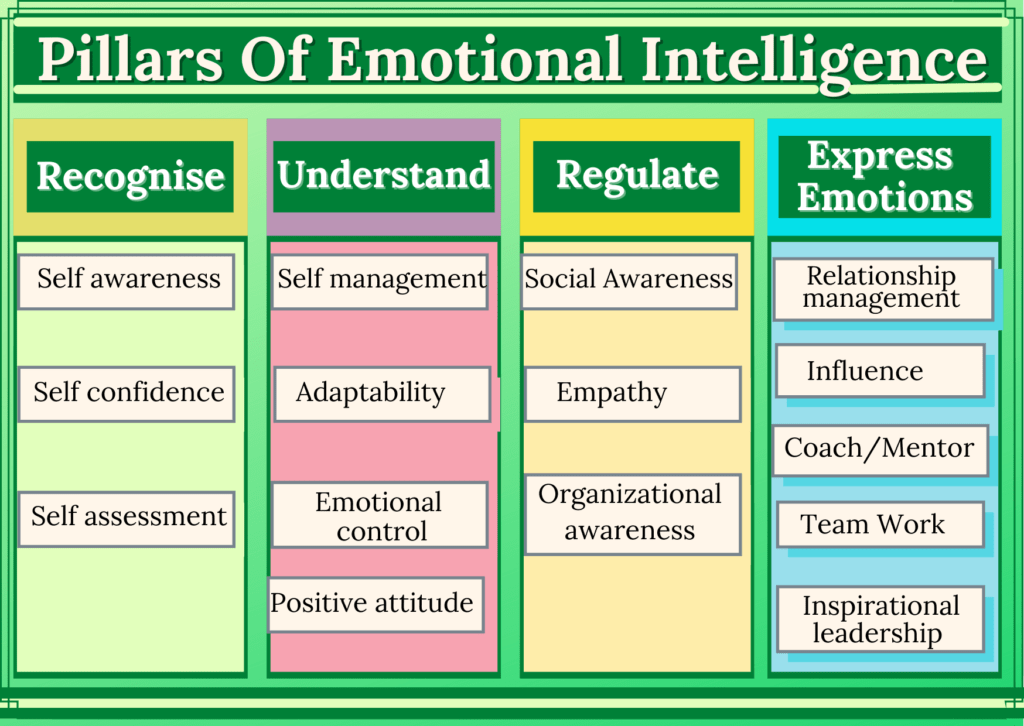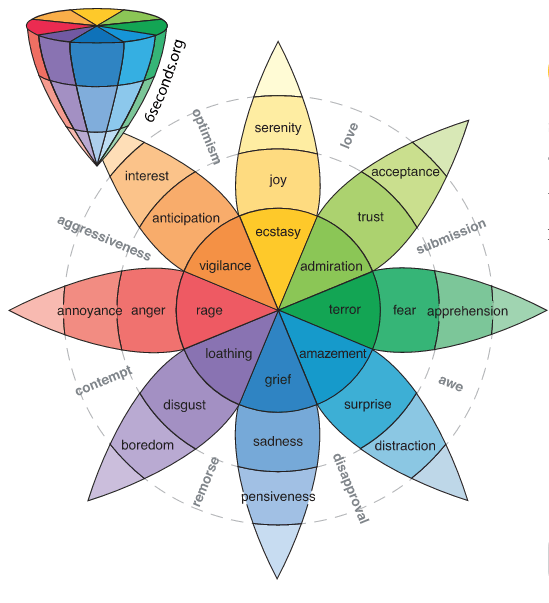How Emotional Intelligence Cultivate Emotional Balance?
The relation between food and emotion has always been an interested topic. In an environment where all kinds of delicious food are present everywhere, many times we make decisions about, what should be our food choices? We all know that making healthy food choice is good for us, but still when it comes to decision making many people experience a huge difference between what they know, they should eat and what they are actually eating. In this blog we are going to explore this contradiction of our emotional intelligence and social connection to food.
What Is Emotional Intelligence?
Emotional intelligence or EQ, is considered as a set of skills to recognize and understand emotions and ability to use this awareness to manage the behavior and relationships.
Did you know that the personal intelligence is a combination of EQ, IQ and personality? In recent years, studies show that the emotional intelligence is the most vital aspect as it manage your logical brain. The good news is, emotional intelligence can develop and grow over the time.
The Four Pillars of Emotional Intelligence
For our understanding, we can say that the EQ has two sides: Intrapersonal and Interpersonal side, that means if EQ is a whole, it is half about understanding emotions and other half about acting on those emotions.
EQ can be divided into four main segments:
- Self awareness: Recognize your emotional feelings
- Self management: Understand that feeling or emotions
- Social awareness: Observing people around
- Interpersonal management: Express that feeling or emotions
Our emotional response is a result triggered stimulus.
Stimulus -> Emotions ->Response
How we respond in every situation is completely our choice.
Self-awareness or Recognize Your Emotions
The First step is to recognize your emotion accurately and understand your reactions during different circumstances.
People with high level of self awareness always try to evaluate the situation correctly so that they can handle it in a better way, they keep trying to get some answers of any problem, such as:
- What was my contribution to the problem?
- How am I feeling right now and how it is impacting on me?
- What are my greatest strengths and how can I use them in this scenario?
Trying to get answers to the above question will help you to cope with the situation, you will be able to understand:
- Emotional Self-Your true emotions and feelings
- Self Assessment- By understanding your strengths and weakness
- Self Confidence- having trust in yourself and your decision making capabilities
- Embrace emotional breakdown as learning
- Understand the feeling of motivation
- Recognize the particular situations or person that upset them
- Notice the pattern of response in a specific scenario. Eg: They may recognize that they get angry when someone gossip about the other person or when someone pretend to be nice.
Self-Management
When you straightened your recognizing or self-awareness abilities, you can start to develop self-management. Self-management is a skill to use your emotions and mange the self-awareness. It is an ability to become a well balanced person, who has full control of his behavior.
People with high level of self-management may try to get these answers to manage their emotions:
- How can I express my disagreement at my workplace?
- How can I stay engaged in this meeting?
- How I would say to my boss, if I don’t agree with his idea?
Emotionally intelligent people always have balance thoughts, such as:
- Show control and balanced reactions
- Never carried away by your emotions to overrule your decisions
- Try to get find peace with unpredicted situations
- Handle complex situation with calm and patient
- Optimistic Attitude- hoping for the best to happen. Developing positive attitude.
- Adaptability- not to be rigid, open to change as needed.
- Achievement- goal oriented and keep working attitude
- Initiative- strategic step towards achieving goals
- Transparency- honest and trustworthy with integrity
- Emotionally Controlled- mature reactions/ expressions with appropriate word usage is a key skill
Social Awareness
Once you get the ability to understand and manage your feelings, you can go forward to the next step, ie Social awareness. Social awareness is an ability to understand other’s emotions and find out the reason behind their reactions or responses.
To develop social awareness, start observing people around you. The observation can be various sides, some examples are:
- Why this person gets upset on this specific topic?
- What are the strengths and weakness of this person?
- How does my behavior can make a difference in this situation?
A socially aware person will think like:
- Give others the equal opportunity to express themselves
- Active Listening- give full attention when someone is talking, remember there is a huge difference between hearing and listening.
- Empathy- understand and connect with others emotions
- Service orientation- helpful, sporty attitude, team effort and showing expected attention
- Organizational Awareness- connect with the audience, to know what the other person’s expectations and being understood
Relationship Management
The next step is relationship management. Relationship management is the use of yourself and social awareness to build your connections with other people.
Some strategies may help to develop relationship management skills, that include:
- Collaborate with different teams
- Build strategic relationships
- Inspirational leadership such as being a motivational speaker, mentor, role model or authority personality
- Recognizing the team catalyst, providing support to your team
- Connect with people frequently
- Interact with multiple people
- Handle stressful situation patiently
- Create a healthy environment where everyone gets a chance to express
Emotional Healing
Emotional healing is a ability to face the situation, accept it without being judgemental and trying to fix the root cause, so that the recurrence chance become low.
There are four guidelines, that might helpful to speed-up the emotional healing process. that includes:
- Shift your emotions: create space to release your feelings
- Self acceptance: Accept your emotion with non-judgment
- Cope with the situation with skill: Learn to adjust with the situation
- An internal locus of control: believe that your life is in your control. That feeling give you strength to cope with your emotions.

How Can We Improve Our Emotioanlly Intelligence?
How we can improve our social and emotional intelligence skills? Here are some tips:
- Be a good listener
- Practice empathizing with other people
- Understand reason behind others reactions
- Don’t be judgmental
- Managing stressful situation effectively
- Without being bias
How To Use Emotional Intelligence In Day To Day Life?
Emotional intelligence can be used in multiple ways in your day to day life. Some practices of EI include:
- Being able to receive criticism sportily
- Being able to take responsibilities
- Being able to say No when needed
- Being able to find out the solution of a problem, which work for all
- Knowing what exactly you want and how to get it
- Not judge other people without knowing their situation
Conclusion
Emotional intelligence is necessary for interpersonal development. Some behavioral expert believes this skill is more essential in determining success in life. Understanding emotions can be the solution of many relationship problems, improved well-being and communication skills.
Achieving emotional intelligence is an important milestone on your journey, but to maintain EI is more important, its all up to you how you begin your journey. Emotional intelligence is more than just a personality development skills as emotions influence our behavior, especially when under pressure and help us to be a better person.











